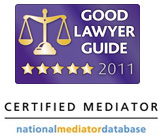Comment
Public Order and Private Investment
Laws and legal systems everywhere have a dual function of defining the identity of their society and the individuals within it, and of supplying the rules by which everyone – including foreigners – engages with each other within their jurisdiction.
Sovereign states tend to want to keep the first function as the preserve of their national courts, whereas the second function can in appropriate cases be devolved to a private arbitral tribunal.
Dubai is in the news again this week for extending the sole competence of its national courts a little further than its foreign investors would like:
Masons – one of the firms that combined to create Pinsent Masons – sent me to Dubai in 2000 to help prepare a claim for further payment on a mechanical and electrical sub-contract package in the new airport terminal building.
The law at the time required every foreign company to be part of a joint venture with a local Dubai company. Contractual payment disputes had to be dealt with in the Dubai courts. The ultimate employer on a major infrastructure project like an airport terminal would be the Dubai Government. The attitude of judges in the Dubai courts, we were led to believe, was that it was unthinkable to find against their own Government in any dispute.
Against this backdrop, it is easy to see why any foreigner investing time and money in Dubai would be keen to have access to private arbitration in the event of any dispute.
But even this is of small comfort if the national courts then refuse to enforce the arbitrator’s decision.
There is a lesson here not just for those thinking about doing business in Dubai. It pays to think through who is the ultimate arbitrator or umpire of the rules covering your engagement with your business partner. Is there any reason to suppose that they will favour one side for reasons other than the substantive merits of their case?
If there is, then you may wish to review how you are investing your time and effort.
Or alternatively, how you might better protect it.
Peter Webster
30th October 2012
Mediation is the Future
A century-and-a-half on from Jarndyce v Jarndyce in Charles Dickens’ “Bleak House”, here is another Lord Chancellor acknowledging ‘the vagaries of the legal system’ and how cases can be costly and take years.
Lord Falconer wants to see mediators separate themselves from this system and develop a non-adversarial cast of mind.
As we suggest in our discussion paper “Beyond the Letter of the Law”, there is a case for saying that the legal system is itself a form of mediation.
And it is certainly the case that parties and their lawyers will continue to bring an adversarial approach to mediation, whatever system it is enshrined in.
It is surely not the adversarial approach or mindset that causes “the law’s delay”, but the procedural pussyfooting around that the court system encourages.
A commercial mediator today can be working with the parties within a week on the substantive issues of even complex cases. Courts and tribunals keep the parties waiting for weeks, months, even years just to see a judge for procedural directions.
Who benefits from delay in a commercial dispute? The party who may have to pay out.
Who benefits from speed? The party hoping to receive payment.
There is always going to be a future for a process which benefits the party with the money.
If mediation is the future, its ability to deal with matters expeditiously needs to be inside the court system and not only separate from it.
29th October 2012


